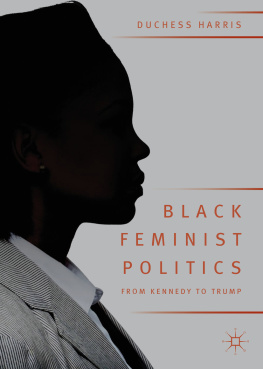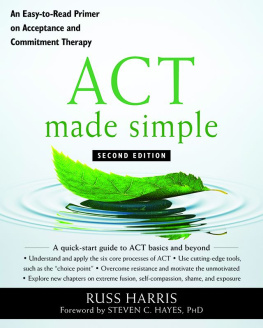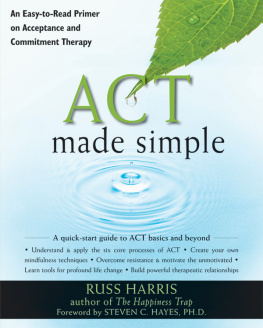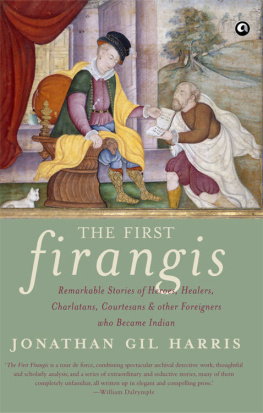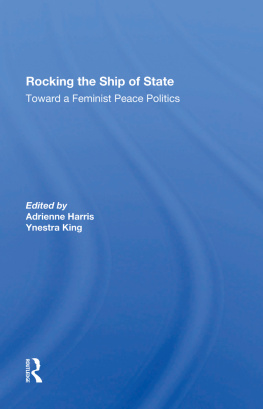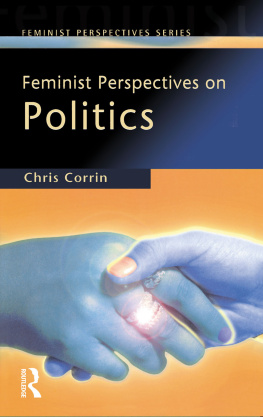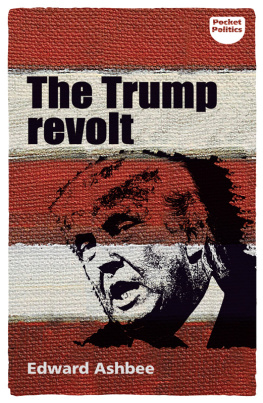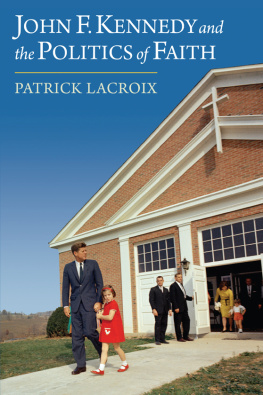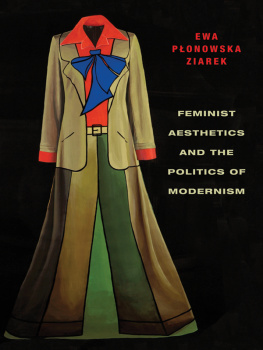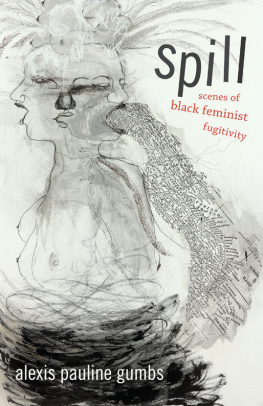Harris - Black Feminist Politics from Kennedy to Trump
Here you can read online Harris - Black Feminist Politics from Kennedy to Trump full text of the book (entire story) in english for free. Download pdf and epub, get meaning, cover and reviews about this ebook. City: Cham, year: 2019, publisher: Springer International Publishing;Palgrave Macmillan, genre: Politics. Description of the work, (preface) as well as reviews are available. Best literature library LitArk.com created for fans of good reading and offers a wide selection of genres:
Romance novel
Science fiction
Adventure
Detective
Science
History
Home and family
Prose
Art
Politics
Computer
Non-fiction
Religion
Business
Children
Humor
Choose a favorite category and find really read worthwhile books. Enjoy immersion in the world of imagination, feel the emotions of the characters or learn something new for yourself, make an fascinating discovery.
Black Feminist Politics from Kennedy to Trump: summary, description and annotation
We offer to read an annotation, description, summary or preface (depends on what the author of the book "Black Feminist Politics from Kennedy to Trump" wrote himself). If you haven't found the necessary information about the book — write in the comments, we will try to find it.
Harris: author's other books
Who wrote Black Feminist Politics from Kennedy to Trump? Find out the surname, the name of the author of the book and a list of all author's works by series.
Black Feminist Politics from Kennedy to Trump — read online for free the complete book (whole text) full work
Below is the text of the book, divided by pages. System saving the place of the last page read, allows you to conveniently read the book "Black Feminist Politics from Kennedy to Trump" online for free, without having to search again every time where you left off. Put a bookmark, and you can go to the page where you finished reading at any time.
Font size:
Interval:
Bookmark:
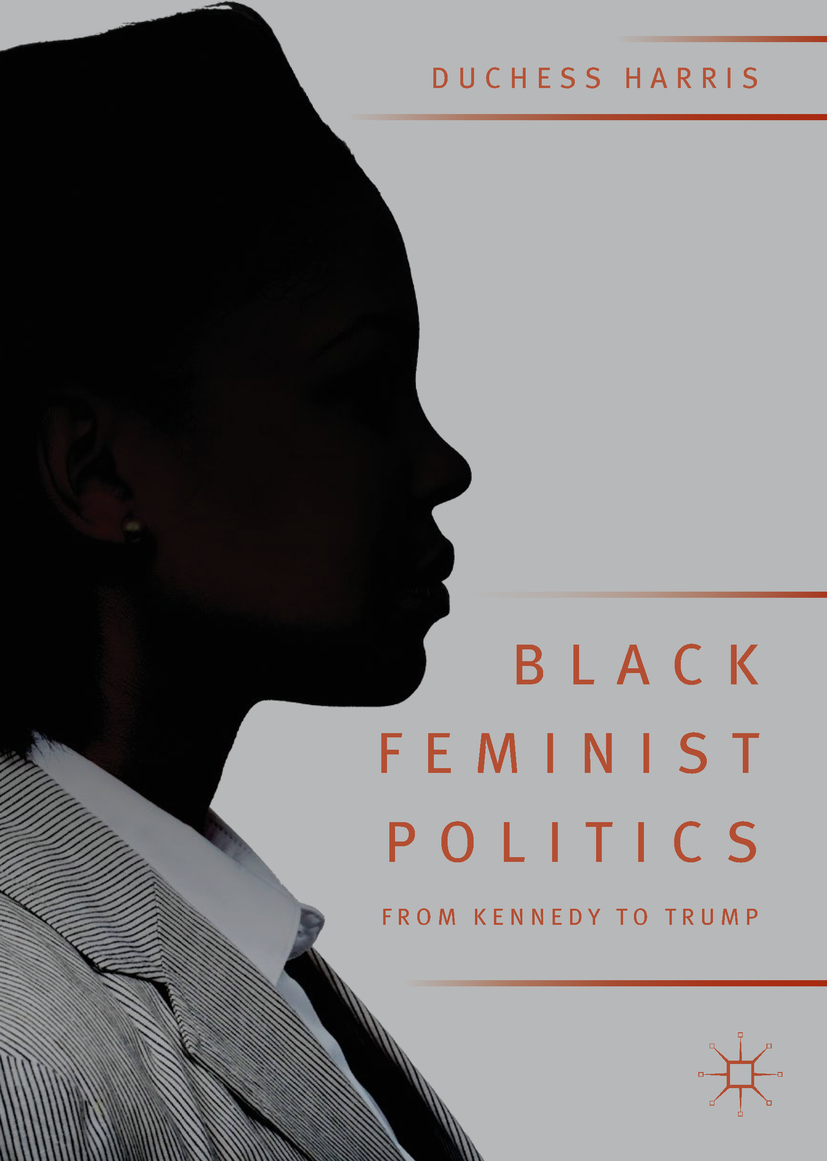

Cover credit: GlobalStock/Getty Images
Cover design by Tjaa Krivec
This Palgrave Macmillan imprint is published by the registered company Springer Nature Switzerland AG
The registered company address is: Gewerbestrasse 11, 6330 Cham, Switzerland
This book is lovingly dedicated to Jon V. Thomas, M.D., M.B.A.
We met on October 10, 1993. It was a crisp autumn Sunday. We went for brunch and to the Minneapolis Institute of Art. On the day that we met, I told you that Id write a book about Black women. You talked about your belief in the harmony of athletic, intellectual, and artistic pursuits. Most women would have been impressed, but I was a myopic 24-year-old Ph.D. student who had never dated anyone who didnt love poetry. You sensed my hesitation, and later that day, you gave me a collection of Toni Morrisons essays and a Maya Angelou poem.
I reflect back on the twenty-five years of our relationship and marvel at how I almost ignored the guy who didnt love poetry. At the time, I considered myself a premier student. What I didnt know was that a poetry lesson could be learned from a scientist. It wasnt until I saw you running in marathons, in your garden, at the piano, in the operating room, and playing with our children that I actually knew what poetry was. Its quite simple: You are poetry in motion.
Jon, Austin, Avi, Zach, and Duch. Together we areJAAZD.
Isabella Baumfree was born a slave in Ulster County, New York, in 1797. After having been sold several times and her last owner was quite cruel, Isabella escaped in 1826. Friends later bought her freedom. In 1843, Isabelle Baumfree changed her name to Sojourner Truth, in recognition of her religious and abolitionist activities. Sojourner Truth was among a small group of free, Black, feminist-abolitionists in the North in the early nineteenth century (McClain and Tauber 2017: 174). This group also included Maria Stewart (18031879), born a free Black but at some point became an indentured servant until she was sixteen and later became an abolitionist and lecturer, and Frances E. Watkins Harper (18251911), a free Black abolitionist, suffragist, author, and poet (McClain and Tauber 2017: 174). Truth began to connect the issue of the abolition of slavery with womens rights during the nineteenth century. Truth was probably the first to highlight the complexities of the Black womens race and gender identities.
That man over there says that women need to be helped into carriages, and lifted over ditches, and to have the best place everywhere. Nobody ever helps me into carriages, or over mud-puddles, or gives me any best place! And aint I a woman? Look at me! Look at my arm! I have ploughed and planted, and gathered into barns, and no man could head me! And aint I a woman? I could work as much and eat as much as a man - when I could get it - and bear the lash as well! And aint I a woman? I have borne thirteen children, and seen most all sold off to slavery, and when I cried out with my mothers grief, none but Jesus heard me! And aint I a woman?
In 1989, 138 years after Truths speech, Kimberl Crenshaw, a Law Professor at Columbia University Law School, put a name to the complexity of Black womens lives that Sojourner Truth identified in the nineteenth century. She coined the term intersectionality in a paper, Demarginalizing the Intersection of Race and Sex: A Black Feminist Critique of Antidiscrimination Doctrine, Feminist Theory and Antiracist Politics, published in the University of Chicago Legal Forum (Vol. 1989: Iss. 1, Article 8) as a way to help explain the oppression of African-American women.
Professor Harris reminds us that the ideas articulated by Truth were an early form of Black Feminism, and that the issues she identified in the lives of Black women still need to be addressed. Just as white Elizabeth Cady Stanton and Lucretia Mott did not understand or care about the plight of Black women, Harris identifies that white feminist for the most part still do not recognize or, in some instances, care about the issues of importance to Black women or how the lives of white women and Black women diverge in experiences. For those not familiar with many of the Black feminist writers, Harris introduces readers to the work of Michelle Wallace, whose book Black Macho and the Myth of the Superwoman , that I enjoyed reading in 1979 when it was published; the poet Ntozake Shange, whose play When Colored Girls Consider Suicide When the Rainbow is Enuf , which was turned into a Broadway play; Alice Walker author of The Color Purple , also made into a movie and a Broadway play; Anita Hills accusations of sexual harassment against Clarence Thomas that pushed the issue into the public debate; the Combahee River Collective; and, among many others, the women who founded the Black Lives Matters Movement. She situates these writers within the US presidents that were in office at the time and discusses the political environment in which these women wrote and were politically active.
Harris historical and current view of the power of Black women and the distinctiveness of Black Feminism demonstrates that contrary to popular myth, Black women to not shy from feminism, but they embrace their own particular form of feminismBlack Feminism. This is a significant update on a very important book, one that has stood the test of time.
Font size:
Interval:
Bookmark:
Similar books «Black Feminist Politics from Kennedy to Trump»
Look at similar books to Black Feminist Politics from Kennedy to Trump. We have selected literature similar in name and meaning in the hope of providing readers with more options to find new, interesting, not yet read works.
Discussion, reviews of the book Black Feminist Politics from Kennedy to Trump and just readers' own opinions. Leave your comments, write what you think about the work, its meaning or the main characters. Specify what exactly you liked and what you didn't like, and why you think so.

